Are you planning on growing Bermuda grass on your lawn? You may want to consider mixing it with another grass variety for both of them to thrive all year long. This will give your turf the appearance that it continues to stay green, no matter the season.
But what grass mixes well with Bermuda? You’ll be surprised to know that there are ‘good’ and ‘bad’ grass varieties that would react differently when grown with Bermuda. This is because of the varying needs different types of grass have.
That said, read on to find out what grass mixes well with Bermuda.
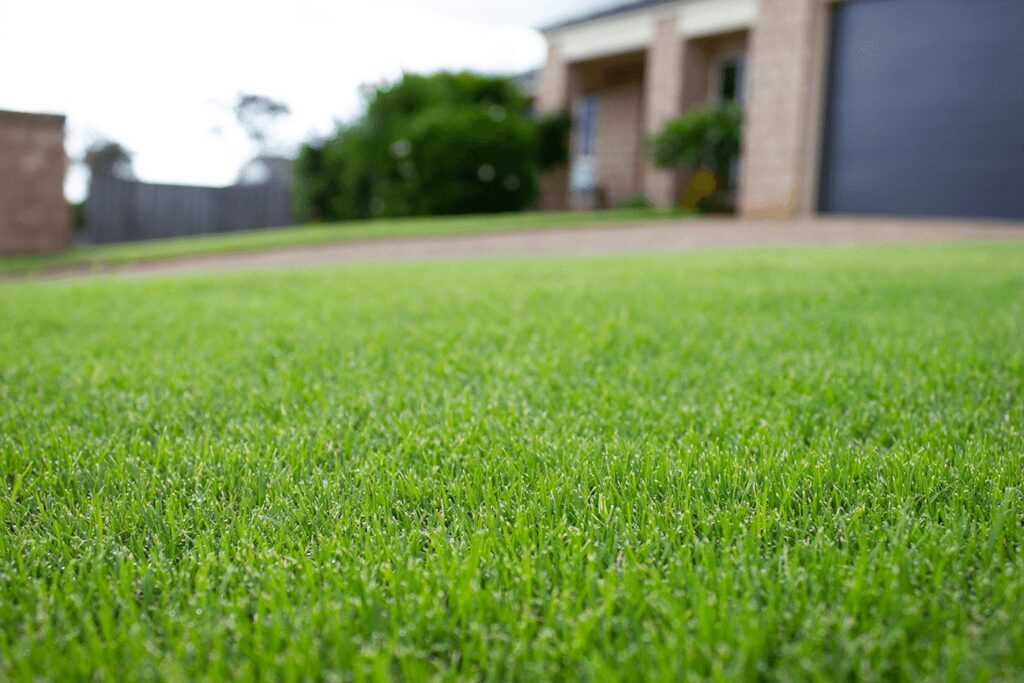
About Bermuda Grass
Before we talk about the grasses that mix well with Bermuda, what is Bermuda grass anyway?
This is called couch grass or wiregrass, which is actually a kind of weed from Africa Savannah, and India. The name Bermuda grass came to be as it was first introduced to the USA from Bermuda. It is a perennial lawn or turf grass, usually grown as pastures or forage.
This type of grass is warm-season grass, so it would require full sun exposure and better drainage. It is tolerant to drought, heat, salt, and traffic, and because of its nutrient requirements, they are a bit high-maintenance. With that said, they are best suited in southern lawns from coast to coast.
These grasses are popular because they have a fast growth rate compared to other warm-season grasses, and while challenging to contain, they endure heavy use well, recuperating from any damage faster than other grasses. Besides being suitable for southern lawns, they are also suited for athletic fields and golf courses.
What Grass Mixes Well With Bermuda?
It’s suitable to mix grasses because it can help improve hardiness. Since most lawns have a mix of differing conditions, suitable grass would be a mixture of varieties.
Now that you know more about Bermuda grass, what about the best grasses that go well with it?
With all this in mind, here are a few types of grass you can consider mixing with Bermuda grass, and the ones to avoid:
St. Augustine: Best
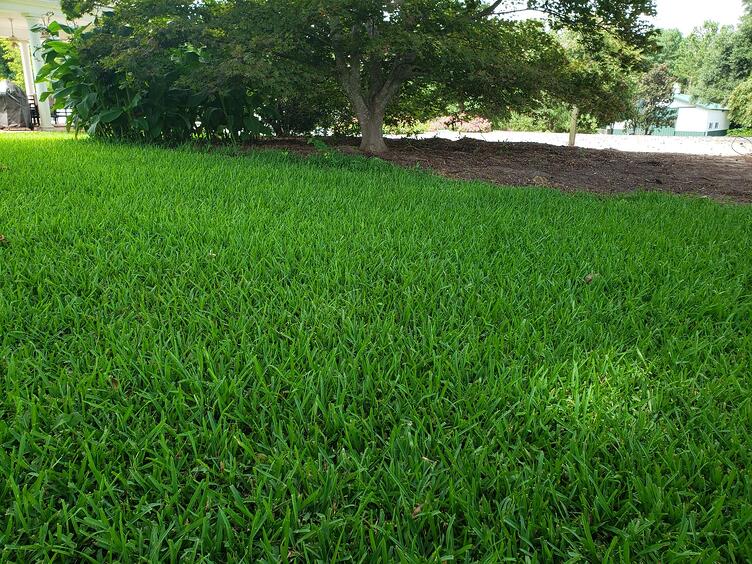
Bermuda grass mixes excellently with St. Augustine grass as they can fill in lawn patches quickly, which are what take longer to reach with sod. Bermuda grass seed will be less expensive to plant, spreading quickly on our lawn. St. Augustine, like Bermuda, thrives in hot climates.
In fact, you might be surprised to know that there will most likely be a bit of Bermuda grass in your St. Augustine turf already. You just need to make sure that you take care of it properly to prevent Bermuda grass from taking over your St. Augustine.
You can do that by watering your St. Augustine grass more for it to catch up with the aggressive growth rate Bermuda grass has. You will also need to fertilize your St. Augustine grass excellently, as it requires twice as much nitrogen.
You will need to mow frequently and raise your mower. Don’t cut your yard too low, as St. Augustine’s higher blades allow the grass to grow better compared to Bermuda grass. Thatch your grass once a year and bag your clips during the first mow of the season.
Kentucky Bluegrass: Best
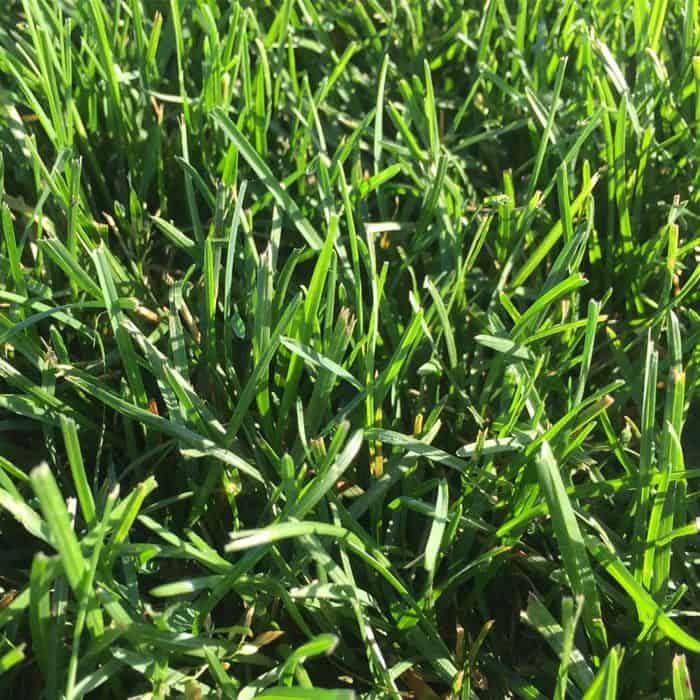
Kentucky bluegrass is one of the best varieties to mix Bermuda grass with! I have created an article all about mixing Kentucky bluegrass with Bermuda grass here.
This is because they both have qualities and characteristics that work well together, helping each other adapt to the different site conditions.
Rye Grass: Best
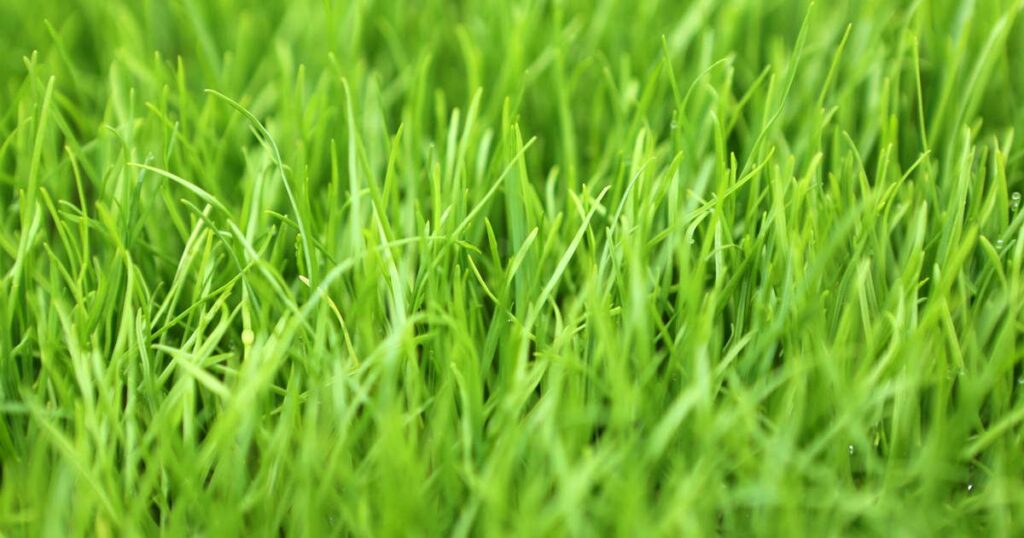
This may be best suited for Bermuda grass planted on sports fields and other high-traffic areas. This is because turf-type perennial ryegrass can tolerate short mowing heights. Ryegrass can also help prevent 100% green-up Bermuda grass would produce.
Winter ryegrass is another great option since ryegrass will continue sprouting during the winter while Bermuda grass stays dormant, so your lawn will stay green all season. That said it will be challenging to have that seamless transition to maintain a uniform green turf, though ryegrass would die off when temperatures rise in springtime, so you have most of the colors from Bermuda grass thriving.
If you don’t mind the slight color differences and want to have grass that stays green all year long, you’ll want to try using ryegrass with Bermuda grass.
Fescue Grass: Best
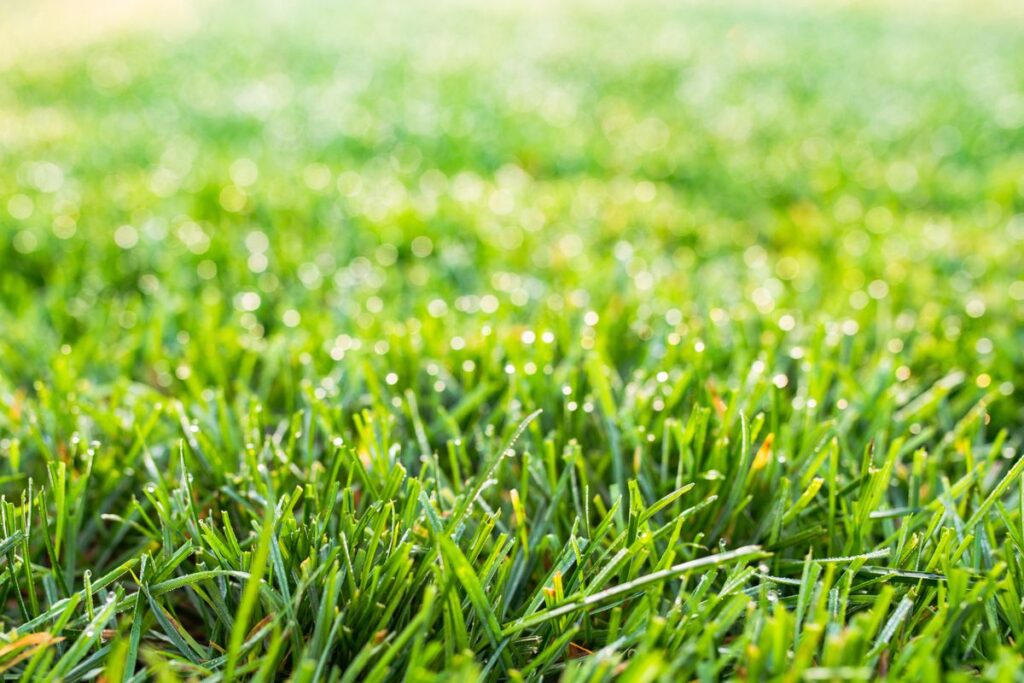
When you combine Bermuda grass with fescue grass, you will be able to have the best lawn no matter the season. This is because Bermuda grass is warm-season grass while Fescue is cool-season grass. As a result, they thrive all year long.
If you want to mix fescue with Bermuda grass, make sure that you overseed Bermuda with fine fescue blends, which are hardy in USDA zones 2-7. You’ll need to prepare ahead, specifically during the last days of summer, since the process may be a bit time-consuming.
Make sure you reduce the thatch of Bermuda grass come summer and aerate your lawn before September to develop a seedbed required to overseed fescue. Then, plant fescue when the air temperatures reach 60-75 degrees F and when soil temperatures are between 50-65 degrees F. Mow your Bermuda grass and bag the clippings, then spread your Fescue seed mix.
You can overseed through spreading the seeds over your Bermuda grass using a drop spreader or rotary. Water the lawn thoroughly and continue lightly moistening your yard 1-2x a day until the seeds have germinated.
Zoysia: Worst

Zoysia is a hit or miss, though depending on the variety and where you’re from, it can be the best grass to mix with Bermuda in shade. This is because Zoysia is more shade tolerant and can be blended into areas where you have more shade while making the sunnier area have Bermuda grass. That’s in an ideal setting, though!
Watch out though, as Bermuda tends to choke out Bermuda, so try it at your own risk. They have stark differences that will make it hard to blend together, as they’ll end up affecting the way you care for your turf, and in a negative way!
Centipede Grass: Worst
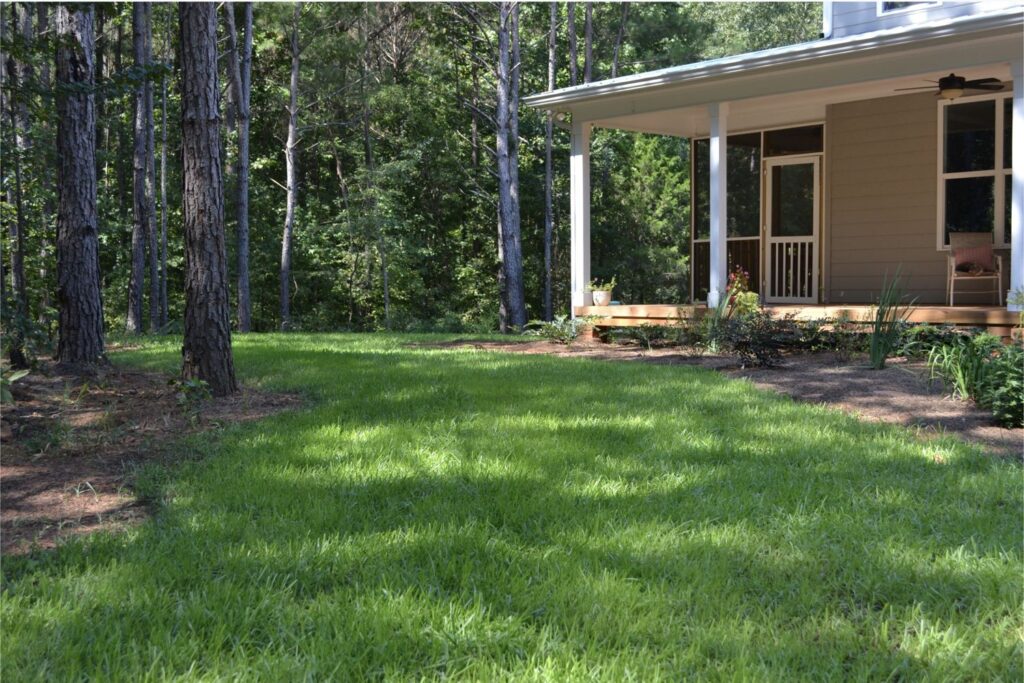
Centipede grass won’t mix well with Bermuda at all! While they have similarities, their growth rate and care requirements are way different, especially when it comes to fertilizers.
You can learn more about the incompatibilities of Zoysia and Centipede grass with Bermuda grass in my previous blog posts.
Wrapping It Up
Bermuda grass is low-maintenance and a popular option when you want to have a lovely green turf, with a ton of varieties to choose from. In terms of what to mix with Bermuda grass, you can mix Fescue and Kentucky bluegrass, though you have to choose the correct varieties. That way, the contrast will beautify your lawn no matter what season it is.
I hope this article helped you learn a lot about Bermuda grass and the grass varieties that go well with it! Make sure that you invested in the right grass variety and follow its care requirements for it to thrive with your existing Bermuda grass. Good luck!